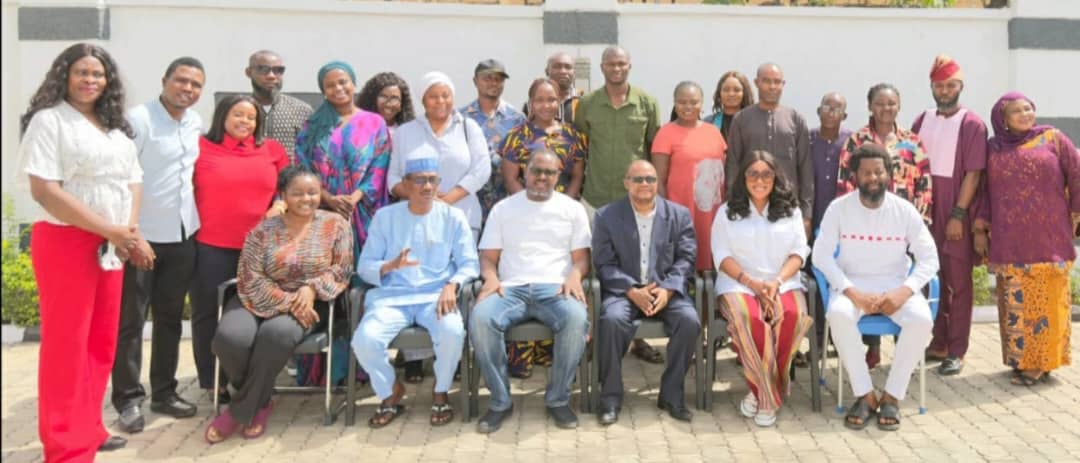By Abujah Racheal & Franca Ofili
Stakeholders in the health sector have called on the Nigerian government to address critical gaps in the country’s Every Newborn Action Plan (ENAP).
They highlighted the urgent need for investment, improved policy implementation, and stronger health infrastructure to reduce maternal and newborn mortality rates
The stakeholders made the call on Wednesday in Abuja during a meeting with the members of the Association of Nigeria Health Journalists (ANHeJ).
They emphasised that while Nigeria has developed a national strategy for reproductive, maternal, new-born, and child health (RMNCH), many challenges persist, particularly at the state level, where weak capacity to domesticate and implement these strategies undermines progress
The Founder and Coordinator of the Africa Health Budget Network (AHBN), Dr Aminu Magashi Garba, said there is a comprehensive national plan, “but there’s a significant gap when it comes to state-level implementation.
“States struggle with domestication and effective rollout, which directly impacts our ability to reduce maternal deaths across Nigeria.”
Dr Magashi raised a major concern about the lack of an investment plan for Every Newborn Action Plan.
“Despite over N1 trillion being allocated to the health sector in the 2025 budget, he noted that no concrete funding strategy exists to ensure the full implementation of the ENAP.
“The government must develop, launch, and fully fund an investment plan for the Every New-born Action Plan.
“Without this, our aspirations to end preventable maternal and new-born deaths will remain out of reach,” he said.
He also called on the Coordinating Ministry of Health and heads of relevant agencies to prioritise the creation of this investment plan, ensuring that the significant budgetary allocations translate into real improvements in maternal and newborn health.
He pointed to persistent issues in the quality of care provided in health facilities, including unreliable electricity, water shortages, and inadequate infection prevention measures.
“These infrastructural weaknesses, and continue to jeopardise maternal and new-born survival. Quality of care is a major thematic area in our action plan, but without addressing basic issues like power supply and clean water, we can’t expect significant progress,” he noted.
Another pressing issue is the migration of health professionals from Nigeria. He highlighted the need for the government to create an enabling environment that encourages skilled health workers to remain in the country and contribute to improving maternal and new-born care.
“Health workers are leaving due to both push and pull factors – poor working conditions and better opportunities abroad. We must address these challenges head-on and create conditions where our healthcare professionals feel supported and motivated to stay,” he said.
Addressing equity in maternal and new-born healthcare is another key focus. he noted that disparities in access to quality care persist, particularly in rural and underserved areas.
He stressed the need for targeted interventions to close these gaps and ensure that every woman and new-born receives the care they deserve.
“Data collection and monitoring also remain weak, hindering effective decision-making and policy adjustments. “We need regular tracking of maternal and new-born deaths and better data systems to guide our interventions,” he said.
He called on the media to play an active role in amplifying these issues, holding the government accountable, and pushing for the full implementation of Every New-born Action Plan.
“The media must highlight these gaps and advocate for timely release of funds and effective policy implementation,” he said. “Only through collective effort can we hope to crush maternal mortality in Nigeria.”
As Nigeria moves forward with its health sector reforms, Hon. Mohammed Usman, Founder of the Lafiya Wealth Initiative, remains optimistic but insists that urgent action is required to address these systemic issues.
With coordinated efforts from the government, health professionals, and the media, Hon. Usman believed that the country could make significant strides in reducing maternal and new-born mortality.
“We have the plans and the resources,” he concluded. “Now, we need the political will and commitment to ensure that every woman and every newborn, everywhere in Nigeria, has the chance to survive and thrive,” he said.
Programme Manager of Health Reform Foundation of Nigeria, Dr Opeyemi Adeosun, emphasised the need for the media to shift from predominantly reporting success stories to actively holding government officials accountable, particularly in the health sector.
While acknowledging the progress made by the Ministry of Health, Dr Adeosun pointed out that many gaps remain unaddressed at both the national and subnational levels.
Drawing inspiration from how the media holds leadership accountable in countries like the U.S., he encouraged Nigerian journalists to adopt a more investigative and critical approach, ensuring leaders are consistently pressured to address ongoing failures in health policy implementation.




